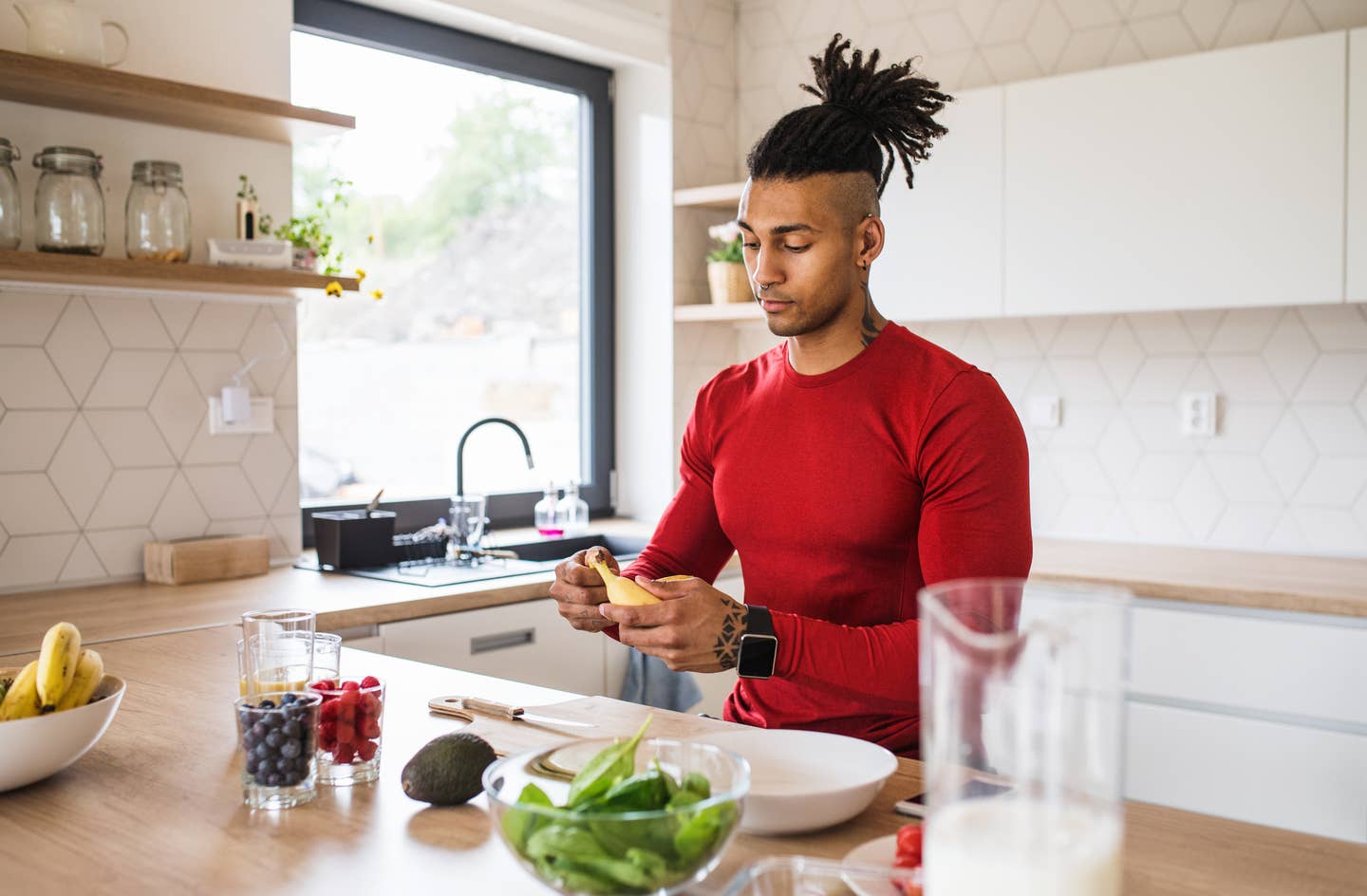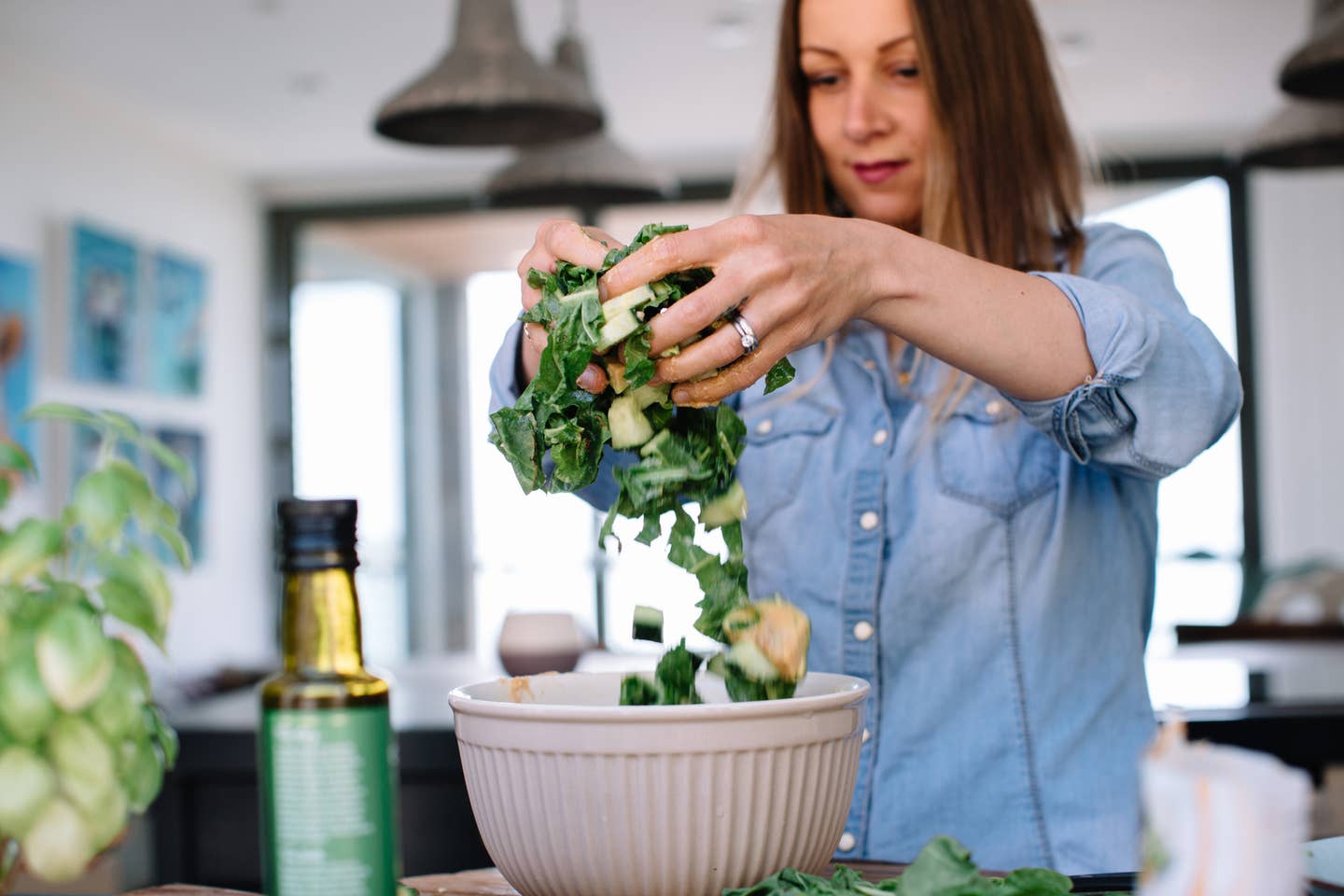
The 8 Best Winter Weight-Loss Tips We’ve Ever Heard from Nutritionists
If you want to make this year your healthiest year yet, you could win the lottery and hire a plant-based, private chef and a personal trainer who motivates you like your very own But assuming that pipe dream doesn’t come true, you could also simply follow these eight simple yet wildly effective tips to lose weight the healthy way and keep it off for good on a plant-based diet, which recent studies show works better for healthy, sustainable weight loss than a meat-and-dairy-centric keto diet. The winter is actually a perfect time to start your healthy eating habits since you have time to do it right and not be tempted to try quick-fix methods to starve yourself or attempt calorie reduction to get ready for an upcoming beach vacation. By losing weight the gradual way by eating a nutrient-rich diet of healthy whole foods (with loads of vegetables, greens, grains, fruit, nuts, and seeds) you'll learn to eat healthier so when you do drop a jeans size or more, you will be able to sustain your healthy diet for years to come. From drinking more water to embracing non-starchy veggies, here are nutritionists' top tips to make your healthy, strong, lean body dreams come true — even if your lotto fantasy is a bust.
1. Befriend H2O.
“Drinking water to stay hydrated can be really helpful for weight loss and weight-loss maintenance,” says Amy Gorin, MS, RDN, a plant-based registered dietitian and owner of Plant-Based Eats in Stamford, Connecticut. “In one study in Obesity found that adults with obesity who drank about two cups of water before each meal lost more than nine pounds in about a three-month period. Other studies have found that starting a meal with a low-calorie vegetable salad or a cup of broth-based soup can help you feel fuller—which can help with eating less at the meal and ultimately help with weight loss, as well.” Research shows a direct link between staying hydrated and mood, so if you want to raise your spirits, all the more reason to pour yourself a tall glass.
2. Make non-starchy vegetables half your plate
“Vegetables not only provide vitamins, minerals, and phytonutrients, but they are low-calorie and filling, thanks to their fiber content,” says Talia Hauser, RD, LDN, referencing a meta-analysis of studies linking increased vegetable consumption with lower body weight and healthy weight loss. Non-starchy veggies include everything under the sun, from leafy greens to squash and tomatoes, to celery and carrots, and pretty much the entire produce aisle, excepts potatoes, corn, and peas.
3. Keep a food journal, including portion sizes and energy
“We have all of our clients do this—they can either take photos of their food or write their food down (and we check their food logs as well!) and it works incredibly well,” suggest Lyssie Lakatos, RDN, CDN, CFT & Tammy Lakatos Shames, RDN, CDN, CFT, a.k.a. The Nutrition Twins, authors of The Nutrition Twins’ Veggie Cure and co-founders of NutritionTwins.com and the 21-Day Body Reboot. “Simply writing down what you eat holds you accountable and allows you to see extra calories that may be creeping in. It also discourages mindless eating, since you are forced to keep track of the amount of foods you consume,” The Nutrition Twins say, noting that research shows that people who write down what they eat lose twice as much weight as those who skip this key step in the #WeightLossJourney. “Often, our clients tell us they didn’t feel like writing a food down, or taking a photo of it, so they don’t bother eating it! (They also are often surprised about how many little bites they had been eating that really add up.) “ they add.
4. Eat more high-fiber carbohydrates.
Prioritizing fiber means filling up on foods that keep you sated for hours. Fiber is also a major help in weight loss since it helps to keep blood sugar low, and your calories burning steadily, not spiking, so you never experience that crash that comes when you eat sugar. When fiber is present in your gut, your insulin stays low (and insulin is what signals the body to store extra calories as fat.) High fiber food means starting the day with oatmeal and adding grains to your lunch and dinner such as barley, quinoa, millet, amaranth, farro, or swapping out your usual pasta for whole-grain pasta. If you eat bread (we happen to love avocado toast) then make sure you choose whole grain bread here. The more fiber you eat the better. “The reason you should reach for whole grain products over refined grains (think white rice, white pasta, white bread) is that they contain all the fiber, minerals, and antioxidants that are in the bran part of the grain,” she says. “Refined grains are stripped of this part, and although some vitamins and minerals are added back, the fiber and antioxidants are not. Whole-grain intake of 3 servings per day has been correlated with lower body weight and body fat.”
5. Eat your beans, as often as possible.
“Research has found that regularly eating the staples of a plant-based diet, such as chickpeas, white beans, and lentils can help with weight loss,” offers Gorin. “There’s one study that found that eating these foods daily can lead to a weight loss of close to a pound in about six weeks! Over time, this can really add up,” she continues, adding that she’s seen clients experience feelings of fullness when adding more beans to their diet, which in turn may help them eat less.
6. Use cooking techniques that boost flavor, not calories.
“I like to encourage people to prepare foods in ways that yield a lot of taste, but not a lot of calories," explains Gorin. "Examples include sautéing vegetables in low-sodium vegetable broth, and grilling or roasting veggies instead of frying them." Some other easy, weight-loss-friendly prep tips she suggests: Rely more heavily on your spice rack— try seasonings like turmeric, cumin, cinnamon, paprika, cayenne, and whatever your favorites are — to coax more flavor out of simple dishes; marinate your proteins to make them less bland; swap spaghetti, penne, fettuccine, and the like, for spiralized noodles in your favorite pasta recipes.
7. Ditch the fake foods, even plant-based ones.
And unfortunately for anyone who loves a plant-based burger, even vegan or plant-based foods that are highly processed can add chemicals, preservatives and additives, including carbs and fats, that make losing weight that much more challenging. So instead of reaching for the vegan cheese, non-dairy ice cream, or meatless sausage patties and thinking "I am being virtuous" tell yourself those are occasional treats to be enjoyed just like their traditional counterparts–rarely. A good rule to follow: If a packaged food (vegan or not) has an ingredients label that has more non-whole foods on it than recognizable vegetables or fruit (like chickpeas for instance) then limit it or avoid it entirely if the goal is to shed pounds. (While you’re at it, avoid these six foods that nutritionists say aren’t as healthy as you thought, too. “Focus most meals on real whole foods and not processed vegan foods like some frozen meals, processed meat and cheese substitutes,” offers Hauser. “Many of these are high in fat, calories, and sodium, while low in fiber.”
8. Sip on tea before meals or snacks.
“Warm tea is calming and takes an edge of hunger. Tea (green, black, and oolong) contains the amino acid theanine, which brings on a mental calmness, yet alertness which helps you to make rational choices,” say The Nutrition Twins, noting that this strategy is especially beneficial for emotional eaters. “This typically works like a charm for many of our clients who find it makes them feel much more in control of their food choices than they would typically be without the tea.” Oolong tea, specifically, has been found in studies, to increase metabolism, help your body burn fat, and boost digestion. Especially during the cold winter months, you may be amazed at how much this easy practice makes a difference in hitting your weight-loss goals.
More From The Beet






